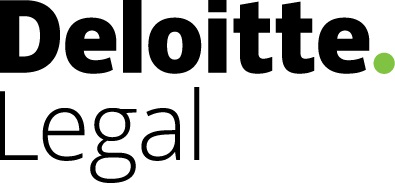What is the most significant change to your region/jurisdiction's tax legislation in the past 12 months?
In the past 12 months, the Spanish government has attempted to introduce a unilateral digital tax. Although the introduction of this piece of legislation has not been accomplished yet, partly because the general elections have interrupted the process but also partly because of the many open questions this generates, it seems that there is a clear determination in launching the tax.
What has been the most significant impact of that change?
Besides the obvious economic and operational impact that any new tax causes, a key aspect to emphasise is the effect it represents to the way the traditional taxation is structured which, in the past few years, is being shaken by means of digitalisation and globalisation.
We are bearing witness to how old taxation schemes are no longer valid, neither for the tax
administration, nor for the private sector. Concepts based on physical presence (i.e. residence, permanent establishment and the like) are in question since they fit poorly within the new economy where material links are not key anymore.
Thus, new taxes, such as the digital tax, are here to stay. This new taxation is interesting, particularly to a person with an indirect tax background as I am, as it breaks the frontier between the classic and spotless division between direct taxes and consumption taxes. This results in a new mindset to approaching taxation that requires more adaptation than we have been used to.
How do you anticipate that change impacting your work and the market moving forwards?
As I said, digitalisation and globalisation are the two main forces affecting the environment. As such, they are changing the market, the way we work and, thus, the way we approach taxes. One interesting aspect on these changes, on which the Spanish tax authorities are strongly focused, is the new order on the relationship between taxpayers and the tax authorities.
This new relationship is now based on real-time data and automated reporting, requiring much less human intervention than before. Consequently, it has obliged taxpayers to adapt the way taxation is managed within the organisation.
How has this changed the way you offer tax advice?
The relationship between tax authorities and taxpayers results in marrying tax advice with technology to provide the market with solutions in applying the advice. It is no longer enough to provide clients with knowledge regarding legislative changes. We also need to address insights on how to implement those changes comprehensively and, in essence, provide a full solution.
What potential other legislative changes are on the horizon that you think will have a big impact on your region/jurisdiction?
Other legislatives changes related to increasing the tax income, such as certain modifications on the taxation of holding entities or the introduction of a minimum corporate income tax for certain taxpayers, have also been interrupted. However, those should be monitored carefully to check how they are designed in case they finally take place.
Besides those, we are also hearing some voices in regard to the requirements of what a 'good taxpayer' should be. Based on the concept of Authorised Economic Operator already in place for customs and now foreseen at EU level for some simplification measures in VAT, that concept might also be extended to the overall tax profile of the taxpayers.
What are the potential outcomes that might occur if those changes are implemented?
This will be another step in the way the relationships between tax payers and the tax administration is governed and, as such, will impact again the way tax advisers, both external and in-house, deal with taxes.
Do you think that change will have a positive effect on both your practice and the wider regional/jurisdictional market?
It is difficult to predict the effects of the many changes flying around taxation currently. Whilst we can reasonably admit that traditional taxation schemes might probably need to be revisited, the truth is that the initiatives around them, being unilateral, dispersed and not harmonised in most cases, are not positive in a globalised world and complicate the managing of taxes by taxpayers.
This document has been prepared solely for the purpose of publishing in the 2019 Women in Tax Leaders guide and may not be used for any other purpose. This document and its contents may not be reproduced, redistributed or passed on, directly or indirectly, to any other person in whole or in part without Deloitte's prior written consent.
Deloitte refers to one or more of Deloitte Touche Tohmatsu Limited ("DTTL"), its global network of member firms, and their related entities. DTTL (also referred to as "Deloitte Global") and each of its member firms are legally separate and independent entities. DTTL does not provide services to clients. Please see www.deloitte.com/about to learn more.
Deloitte is a leading global provider of audit and assurance, consulting, financial advisory, risk advisory, tax and related services. Our network of member firms in more than 150 countries and territories serves four out of five Fortune Global 500® companies. Learn how Deloitte's approximately 286,000 people make an impact that matters at www.deloitte.com
This communication contains general information only, and none of Deloitte Touche Tohmatsu Limited, its member firms or their related entities (collectively, the "Deloitte network") is, by means of this communication, rendering professional advice or services. Before making any decision or taking any action that may affect your finances or your business, you should consult a qualified professional adviser. No entity in the Deloitte network shall be responsible for any loss whatsoever sustained by any person who relies on this communication.
© 2019. For information, contact Deloitte Touche Tohmatsu Limited.


